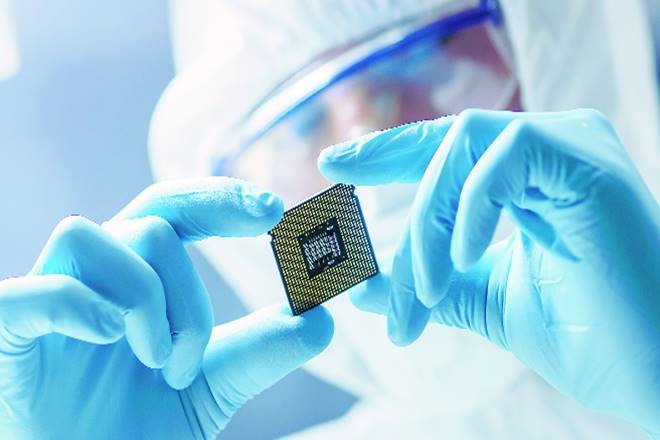The Unsung hero of Technology: afdec/ecsn predicts semiconductor growth in 2019

We’re living in a digital world where semiconductors and electronic components are taken for granted. Semiconductors are the unsung heroes of technology, providing high-speed processing power for computers, flat-screen displays, smartphones, and many other electronic devices.
But Artificial Intelligence (AI) is changing everything – and bringing semiconductors back into the deserved spotlight. AI's potential market of hundreds of zettabytes and trillions of dollars relies on new semiconductor architectures and computing platforms.
Making these AI semiconductor engines will require a wildly innovative range of new materials, equipment, and design methodologies.
The UK & Ireland electronic component market is expected to grow between 3.4% and 8.5% in 2019, forecasts afdec, which is part of the Electronic Components Supply Network (ecsn), with a mid-point of 5.9%.
The afdec/ecsn consensus opinion is that the recovery in the high-tech manufacturing sector should continue, despite the many uncertainties and the electronics sector should outperform the macroeconomic environment.
The market grew strongly throughout 2018 with expected growth of about 9% over 2017 compared to the forecast, which predicted a growth range of 6.5% to 10.5%.
Natalie Tyler, Redline’s Manager for the Sales & Marketing Division discusses further: “2018 was indeed an exciting year for semiconductor and the electronic component arena, with growth in almost every sector and application. It was a strong year across a wide range of technology. Optical sensing was very strong, which was forecasted. The first major products are growing rapidly, with Apple’s face ID having a large impact on this market segment.”
“Our lives have become digital. An Amazon Echo wakes us up and answers questions about the weather and traffic. Google Maps tells us the best way to get to a meeting. Yelp finds the best nearby restaurant. A Tweet now even informs us of the latest change in government policy.”
“As technology recruiters, we know that the digital world only works because of the semiconductors and electronic components together with the existence of an integrated electronics manufacturing supply chain. Electronics manufacturers make the materials and equipment that, in turn, make the semiconductors that become the beating hearts of the global digital economy.”
“Semiconductors have been largely invisible – hidden away under and inside smart speakers, locked deep within a mobile phone or even buried in data centres. We must not forget that without semiconductors, internet companies like Google, Facebook and Amazon would not exist. It is these companies who have stolen the meaning of ‘Tech’ and are often given the most credit for our digital world when it is the semiconductor which should be the most accredited.”
AI is changing everything
With over $477.9Bn semiconductors sold in 2018, up 13.45Bn on 2017 which marks the industry's highest-ever annual sales, these unseen devices are the core component which drive today’s Apple computers in mobile phones, facilitate online shopping and social media and in the televisions streaming Netflix. Today, internet companies such as Alibaba, Amazon and Microsoft are rushing to develop their own semiconductors, which means Silicon is back in Silicon Valley and ultimately hardware is, once again the place to be.
We are now entering the era of Artificial Intelligence (AI) – and semiconductors and new computer architecture are the key to AI. At this moment in time, hardware, not software, is the AI enabler to make leaps in performance and to usher in new architectures to become brain-like with neural networks.
The global semiconductor industry is changing and evolving rapidly. While mobile phones continue to provide a solid base, innovation is happening in many other sectors such as driverless vehicles. The entire ecosystem is having to re-evaluate decisions that were made decades ago, and design innovation is becoming more important than it has ever been. The robustness of 2018 has given companies the opportunity to change and continue innovation through 2019.
Redline's Sales and Marketing division is a specialist in technical sales and marketing opportunities providing solutions to a range of clients in the semiconductor and electronic component industry throughout the UK and mainland Europe.
For more information on Semiconductor Jobs and Sales Engineer Jobs please contact Natalie Tyler on 01582 878808. For all Technical sales, applications engineering, marketing & product management jobs, please click here.

